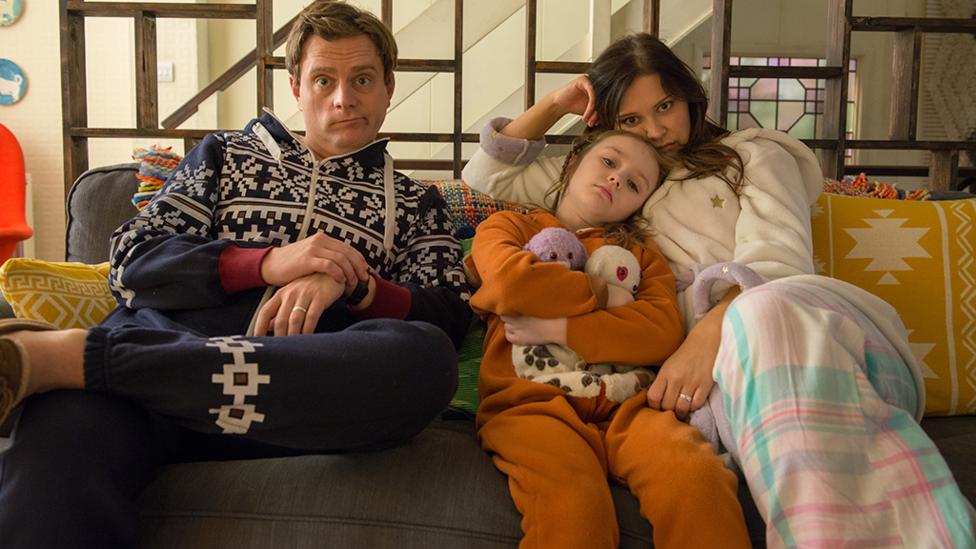Help your child cope with missing someone
Missing someone close can be confusing and upsetting for little ones. Whether it’s family who live far away, friends who’ve moved to a different school, or a parent who they don’t see every day like Doug's mum in Waffle the Wonder Dog, it can be hard for them to understand the complex emotions that come with saying goodbye. Learning to cope with being away from loved ones is something that will help them right through to adulthood. Here are some top tips for helping your child handle the situation.

����
Acknowledge emotions
If you sense your little one getting upset make sure to address their emotions. Reassure them that it’s okay to feel a bit sad when someone goes away, even if it’s only for a short time. Talk about how they'll feel when they see them next; will they be excited? Nervous? Happy? It can be extra reassuring for them if you talk about how you’re feeling too. Learn more about talking to your child about emotions.
Top tip: be patient if children are irritable, cranky or regress a bit after saying goodbye to someone they might not see for a while. It’s often just their way of coping with confusing emotions.
����
Keep in touch
Hours and days seem longer for little ones than they do for us, so regular contact is important. If family or friends live far away, try and set up a regular scheduled time to phone or video call. If they’re missing a parent who is at work, you could arrange a lunchtime call to check in and tell them about their day. Send lots of photos and videos back and forth of everyday moments as well as special events. Learn about safer ways to share photos of your child.
Top tip: if important school or nursery friends move away, try to facilitate your child staying in touch. Speak to the other parent to arrange occasional playdates or phone calls if you can, but don't force it if your little one naturally loses interest over time. Gently encourage them to play with new friends as well as remembering old ones.
����
Everyday life
Talk to your child about the person they are missing. Chat about what they might be up to today. Keep photos of them either on display, or somewhere accessible to your child, and remember things you've done together. You can make people a part of everyday life even if they’re not physically around.
Top tip: Get your child involved in making these picture frames, so they can display their favourite special photos of loved ones around the house.
����
Get planning
If you’re going to be visiting someone your child hasn't seen in a while, get them involved in planning the trip. Go through photographs of the last time you were all together, especially if your child was very young. Look at where you will be going on a map or a globe, talk about how you will travel there and plan what activities you would like to do together this time. Being included in planning can help children feel more in control and will keep them busy while waiting for the big day!
Top tip: make a countdown calendar to help your child understand the passing of time. Young children struggle with the concept of time so seeing it visually can help make sense of it.
����
Distractions
Arrange a familiar, fun activity to keep them busy after saying goodbye to family or friends, just like when Evie and Waffle play dressing up after Doug leaves to visit his mum. This should keep them happily distracted from the visit being over. If a parent or sibling is going away then give your child a special responsibility to focus on at home. This will keep them busy and help them to feel grown up, plus they’ll love telling the family member all about their very important job when they see them next!
Top tip: ask your child to take care of something belonging to the person they’re missing , e.g. ‘Look after Granny’s teddy bear for her until our next visit’. They'll feel very proud to be given this special responsibility.
����